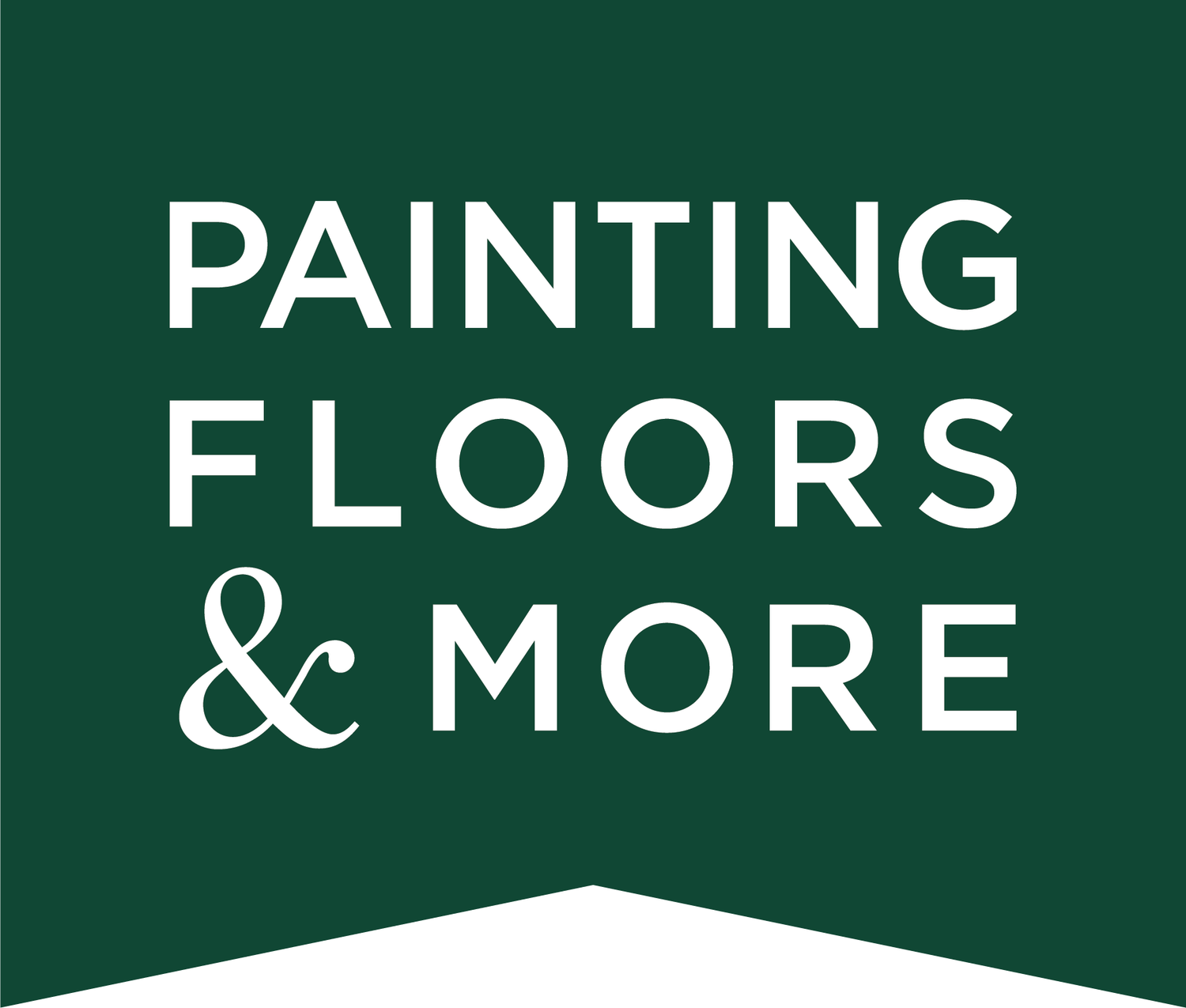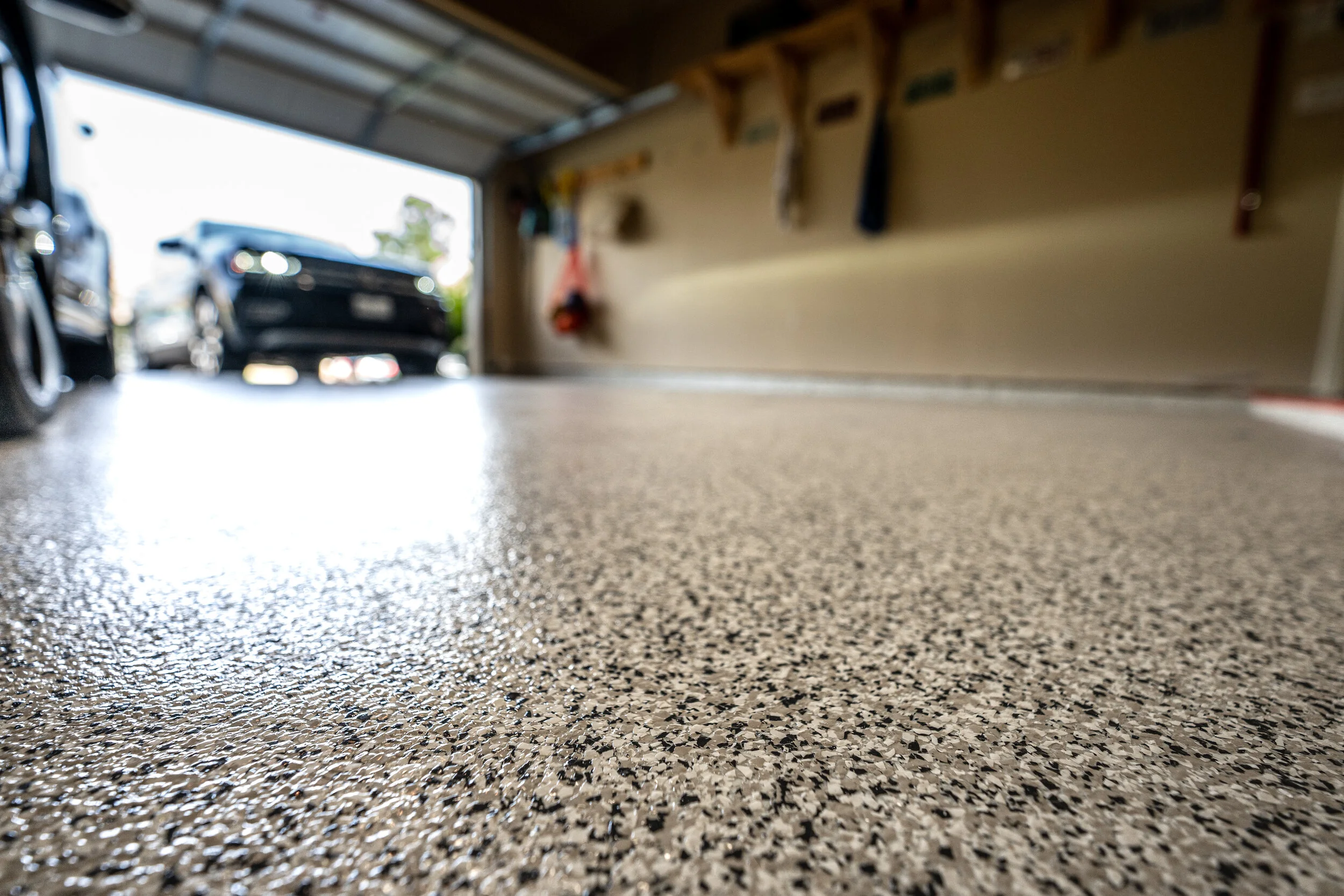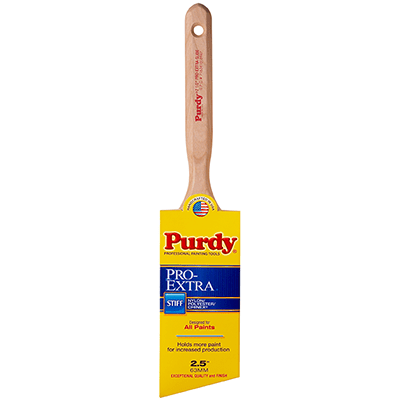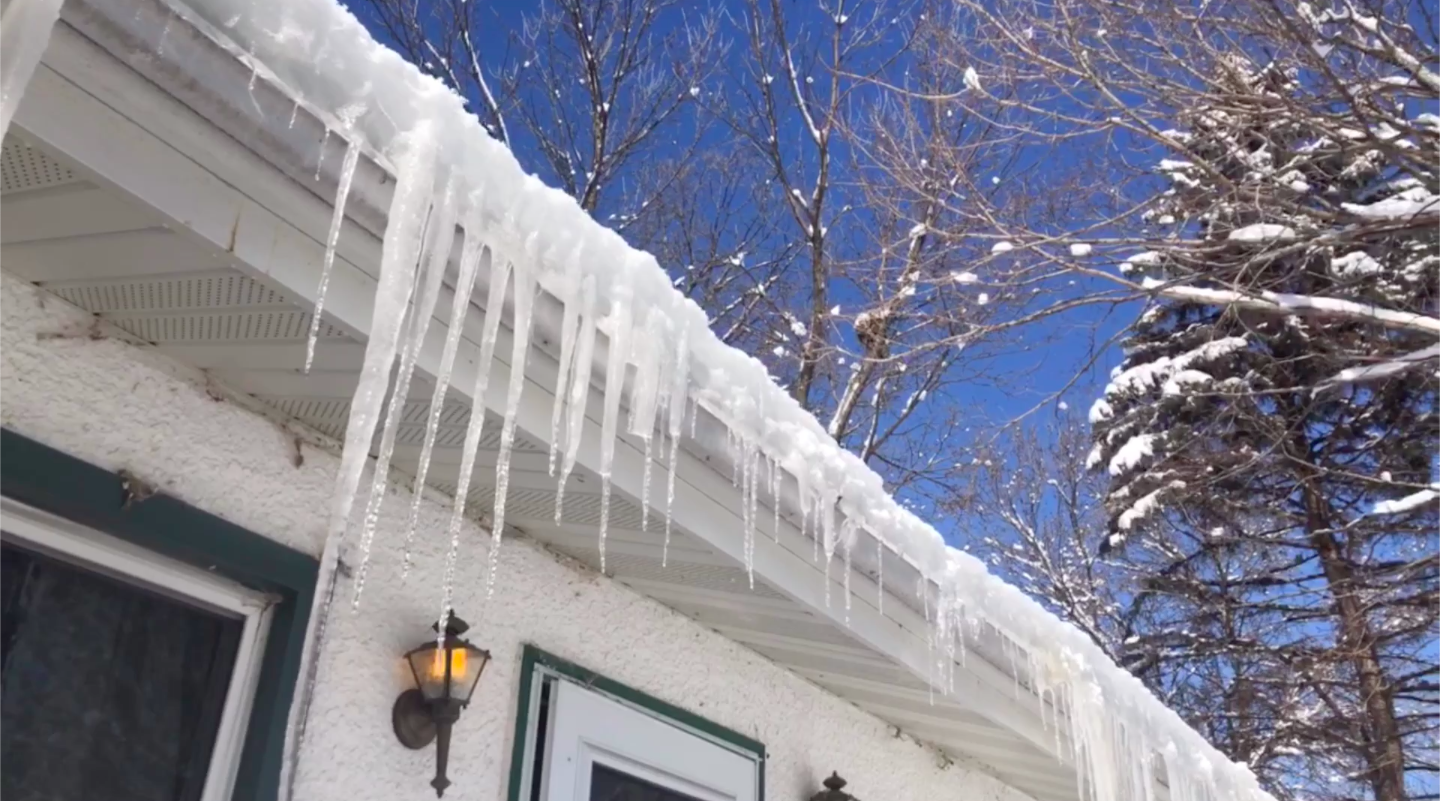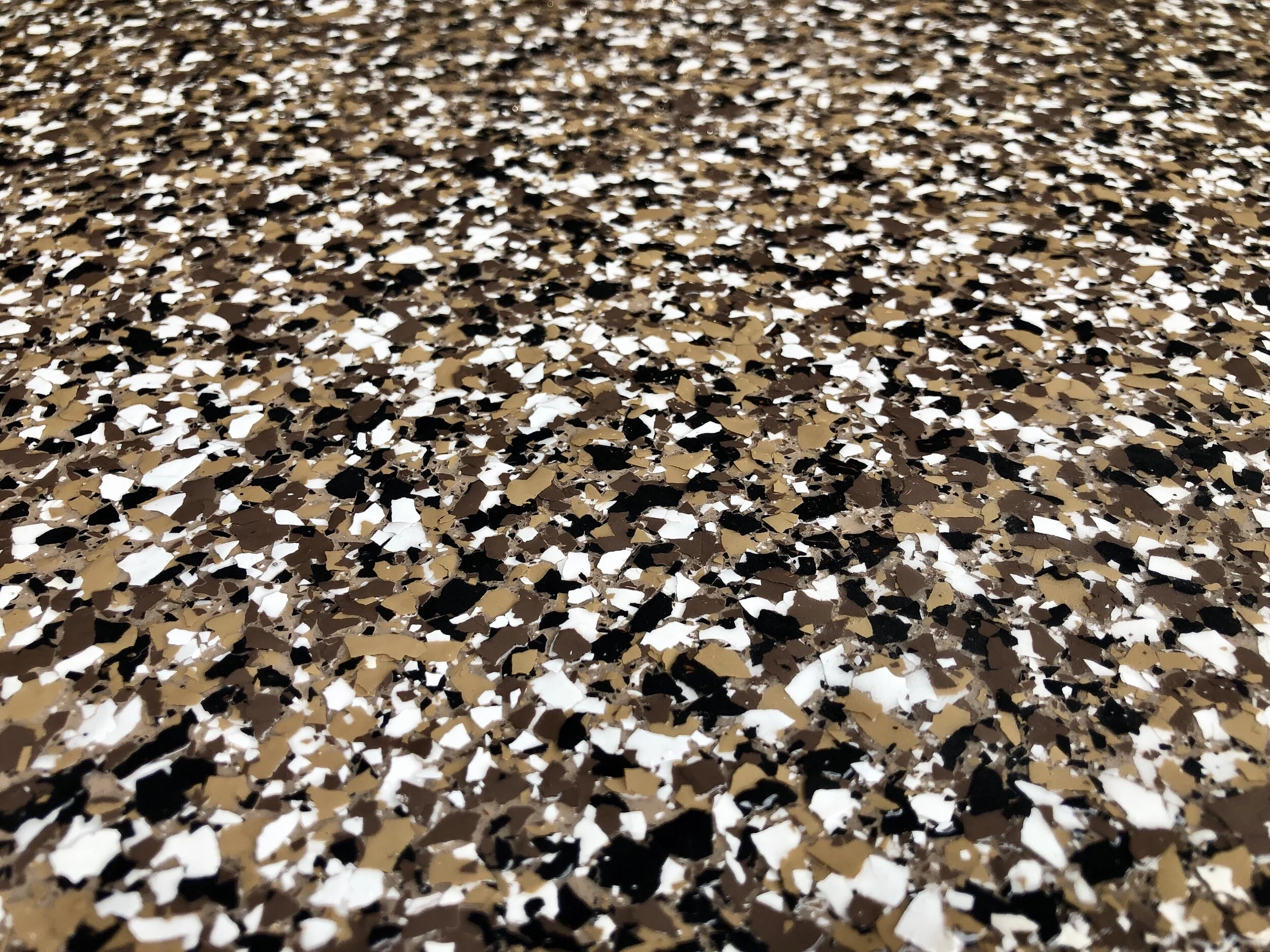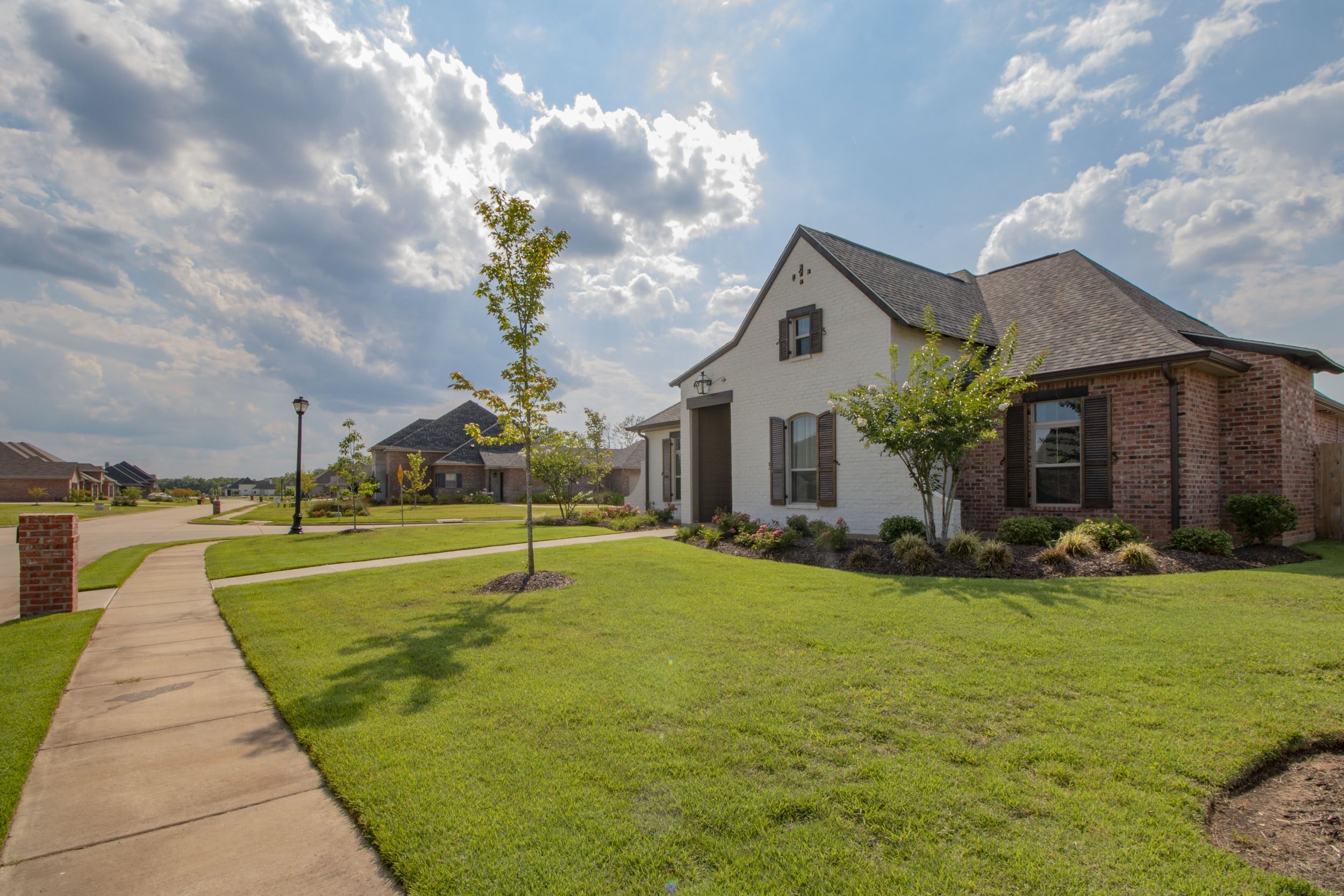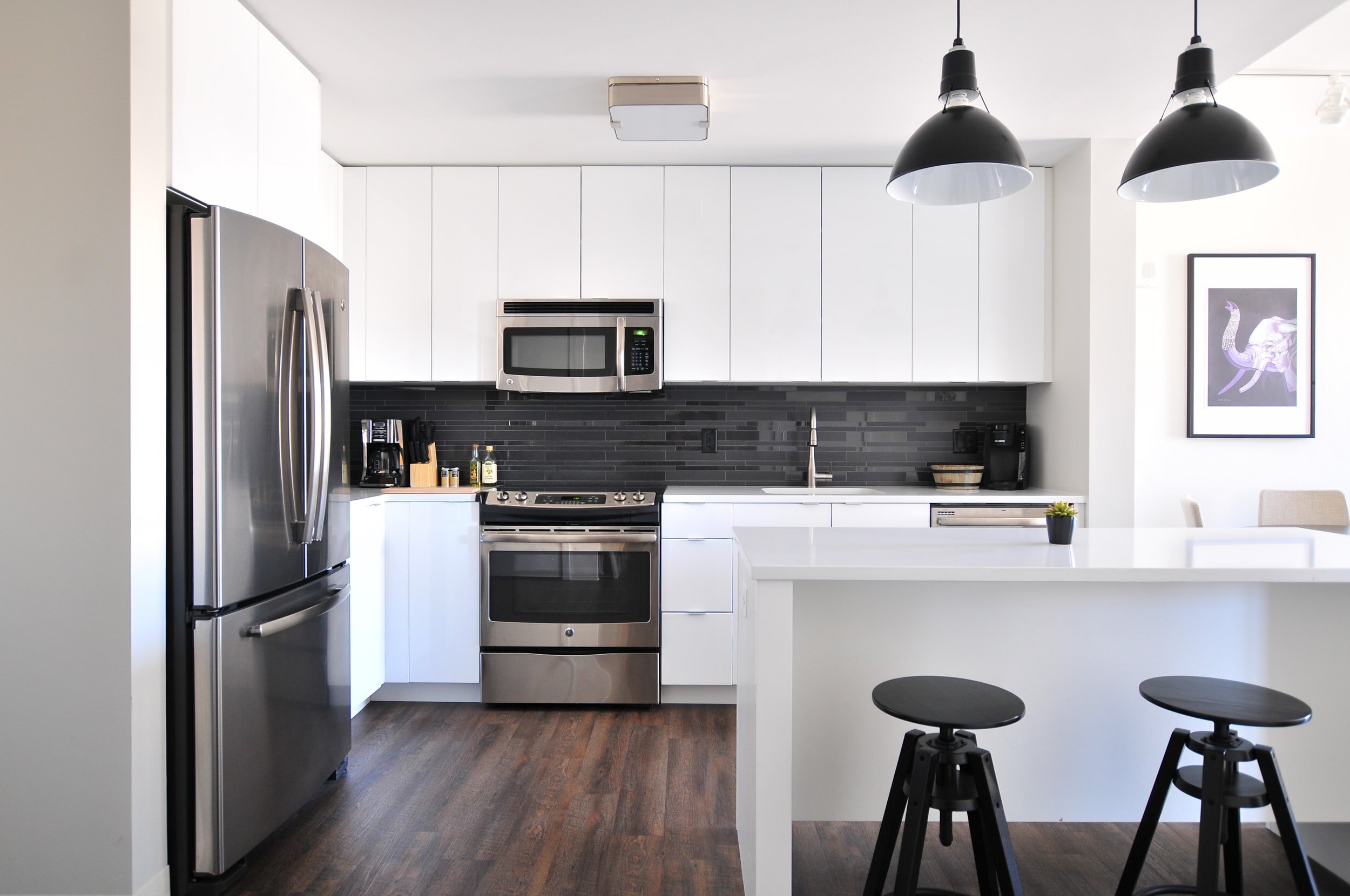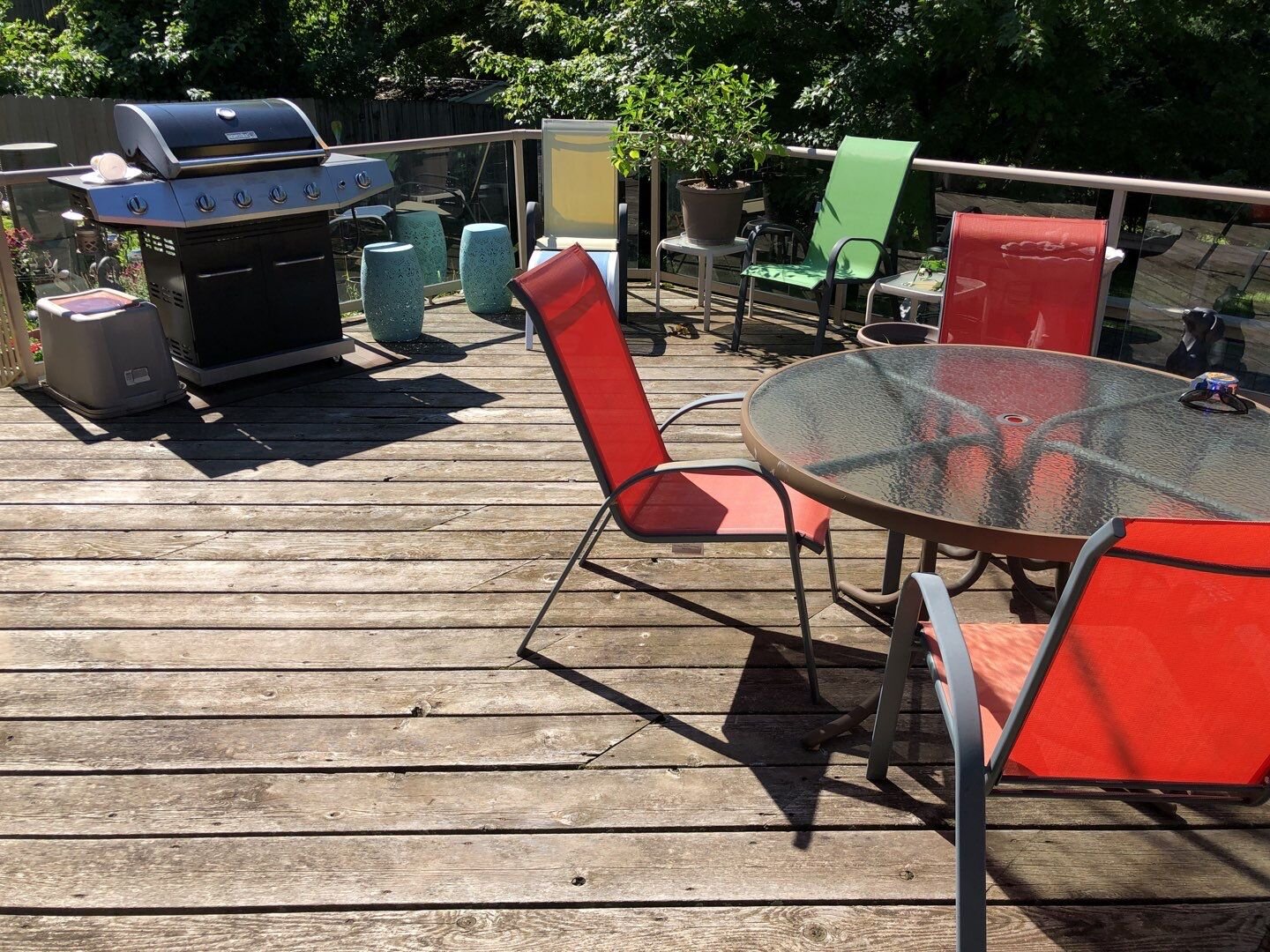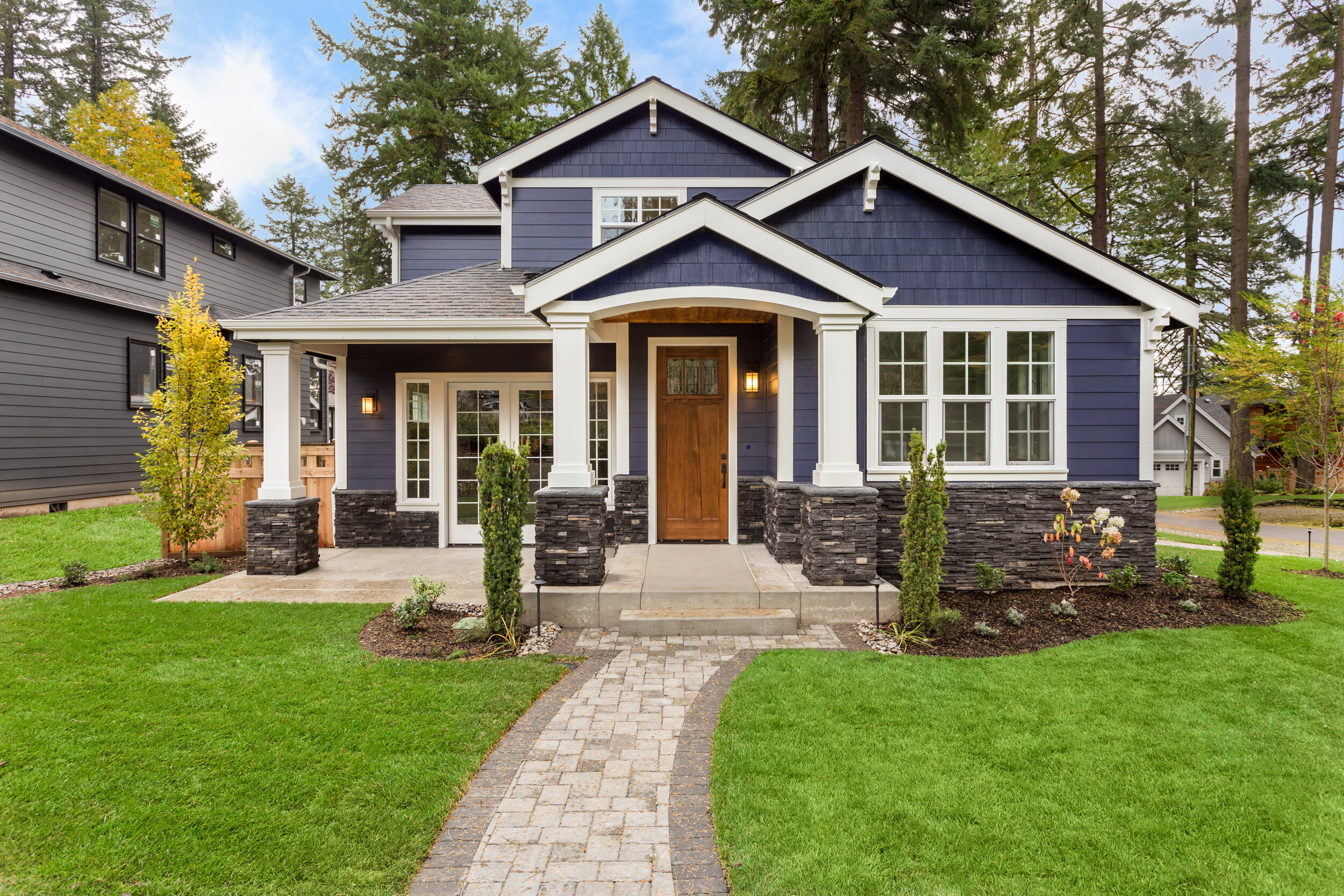Minnesota winter road salts and liquid de-icers not only wreak havoc on our vehicles, but also our garage floors… resulting in cracking, pitting and damage to our concrete slabs. Once cracks form, water is able to enter, settle, freeze and expand, making your existing damage that much worse. Water can also wash away the base that the concrete slab is poured on, resulting in the sinking of the slab. Not only is the result an eyesore, but it might eventually mean that you’ll need to replace your entire slab. Garage floor coatings are a preventative measure that will ensure this won’t happen! And as an added bonus, they are also incredibly visually appealing, and can turn your garage into an extension of your home, and one that you will want to show off to your neighbors.
When thinking about garage floor coatings, you have probably heard the term “epoxy,” and are likely envisioning a gray coating sprinkled with flakes. In this guide, we are going to demystify the two types of garage floor coatings: epoxy and polyurea (sometimes also referred to as polyaspartic floor coatings, which is a type of polyurea), so that when you’re ready to give your garage a facelift, you’ll be armed with the best info possible.
Both epoxy and polyurea garage floor coatings will take your garage from cracked and stained concrete to a beautiful space that you’ll look for excuses to spend time in, but they differ greatly with regard to durability. Before we dig into the differences between the two products, let’s take a quick look at what needs to happen to your floor before any products are applied.
PREP WORK
In order to ensure that your new coating will bond with your existing floor, special steps need to be taken to prep your concrete. This includes profiling your floor with either diamond blades or a shot blaster to reveal a fresh and new concrete surface, cleaning out and filling cracks any cracks and pits with a two-part flexible joint filler, profiling your floor once more, and then thoroughly vacuuming. Click here to read about our prep process in more detail.
EPOXY COATINGS
Epoxy paint is a resin polymer that is chemical-resistant (stain-resistant), will create a slip-free surface in a space that is prone to spills and puddles, and is customizable. It is also an economical option, and because it does not immediately dry or cure, is a relatively easy coating to install. A typical epoxy garage floor coating system includes a primer, a colored base coat, and two top coats of polyurethane. The base coats come in a wide variety of colors, you are also able to customize your finish and opt for matte or high gloss, and you can decide whether or not you want to include colored flakes, to add even more slip-resistance and style.
Unfortunately, epoxy coatings dry hard like glass on the surface of your floor, and as a result are prone to cracking, peeling and scraping, making them less durable overall. They may also fade and yellow as a result of UV exposure, and invite the potential for reduced air quality with off-gassing (however newer formulas have been made to address this issue). Lastly, this type of coating is difficult to apply in extreme hot or cold conditions.
POLYUREA COATINGS
Polyurea is a hybrid material that was first created in the 1990s as a coating for the steel used in bridge building because of its corrosion-resistant properties. A typical polyurea garage floor coating system includes a colored base coat, vinyl flakes, and a polyurethane top coat. These coatings perform well in a wide range of temperatures and climates, and are frequently used in both residential and commercial applications. They offer extreme flexibility, meaning that they will never crack, flake or scrape, are able to be tinted in a variety of colors, and are typically complimented by colorful vinyl flakes to create slip-resistance. Polyurea coatings usually have a clear, glossy finish, much like how wet concrete looks.
Polyurea floor coatings are a more expensive option, and are best installed by professionals given their quick dry time, but will last a lifetime. Polyurea floor coatings can be installed in a variety of weather and temperature conditions, typically in as little as 1-2 days, and only require a cure time of up to 72 hours. Cleaning up spills and messes on your polyurea floor coating is incredibly easy, and can be done with soapy water and a rag. Polyurea floor coatings are also stain and scratch resistant, are colorfast (no fading) and off put no gasses or odors.
Overall, polyurea floor coatings are the clear winner in a contest of durability, and are the only type of coating that Twin Cities Resurfacing applies to garage floors. We would love to give you a free estimate to help you completely transform your garage and be the envy of all of your neighbors. Click the link below to get started!
FINAL THOUGHTS
Overall, polyurea floor coatings are the clear winner in a contest of durability, and are the only type of coating that Twin Cities Resurfacing applies to garage floors. We would love to give you a free estimate to help you completely transform your garage and be the envy of all of your neighbors. Click the link below to get started!
